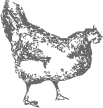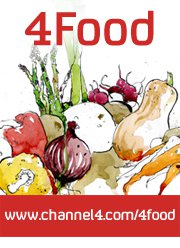
First of all, an apology for the appalling article title ☺
Being from Yorkshire, tea is a subject dear to my heart. I’ve noticed a few bloggers writing recently about a piece of research published in the European Heart Journal which found that adding milk to tea completely removed the beneficial vasodilation effect seen when the same black tea was drunk without milk.
The effect in question is one of the famed cardiovascular protective effects of tea and is a widening of the blood vessels therefore reducing the pressure of the blood flowing through the arteries. Given the huge number of tea drinkers in the world any high quality study on the health benefits of tea is not to be ignored. However, this is just one measurable effect of tea consumption on the body and there are plenty more that we haven’t even begun to investigate yet. In scientific terms tea is still a surprisingly mysterious and poorly understood ingredient and there are many other tea studies that have shown no difference in the health benefits afforded by tea with milk and tea without milk.
I’ve been surprised at how few people have mentioned the possible nutritional impact of hoards of people giving up milk in their daily cuppas. In the Western World at least milk and milk products are one of our main sources of calcium. If you have, say, four mugs of tea with milk every day, you probably take in getting on for 140g of milk (we’re talking about mugs here, it will be less if you have proper cup and saucer). This equates to between a quarter and fifth of your recommended daily calcium intake.
So, there are a few reasons to think twice about ditching the milk in your tea (in addition to the horrible taste, yeuch!). If you are worried about losing out on the beneficial effects described in these studies, how about one of these strategies?
- Lose the milk in the tea but make sure that you replace it with another small portion of dairy, preferably low fat (cottage cheese or yogurt perhaps) or even a non-dairy calcium source (sardines, tofu or sesame seeds for example). You could go for black tea during the day but replace your bedtime drink of tea with a mug of hot milk which will also help you sleep.
- If you are a real tea-fiend and don’t want to mess with your cuppa how about keeping your current milky tea intake and supplementing it with a couple of cups anti-oxidant rich green tea which are always served without milk (tip: if you buy the loose leaves they are much less bitter tasting than the sort you get in tea-bags).
- Do something else that is better established as being good for your heart and which may contribute a much bigger benefit in the grand scheme of things; add in an exercise session, replace some of the butter you eat with olive oil, replace some of the red meat you eat with oily fish.
If you want a few more opinions on this there is a good collection of expert perspectives on this BBC news article. For me a cup of tea is a chance to relax, so I will be keeping the milk in my tea (and no I don’t always have two biscuits with it) and possibly branching out into the odd cup of green tea.

 Come join me on Twitter
Come join me on Twitter Sophie Roberts is a registered dietitian based in Oxford, UK. She loves combining her nutrition know-how with a sustainable approach to buying and preparing food and shares her tips and recipes here at Mostly Eating.
Sophie Roberts is a registered dietitian based in Oxford, UK. She loves combining her nutrition know-how with a sustainable approach to buying and preparing food and shares her tips and recipes here at Mostly Eating. 